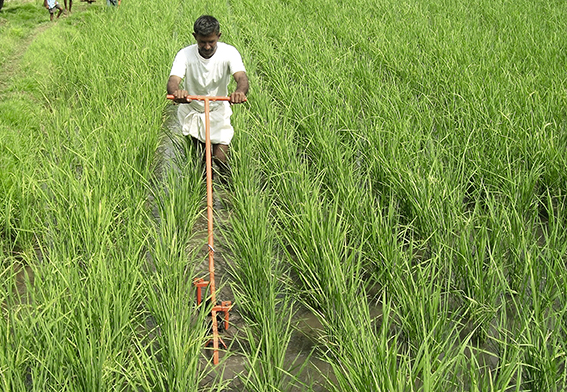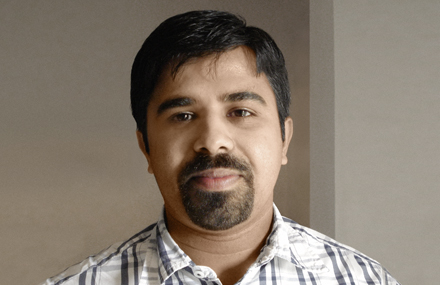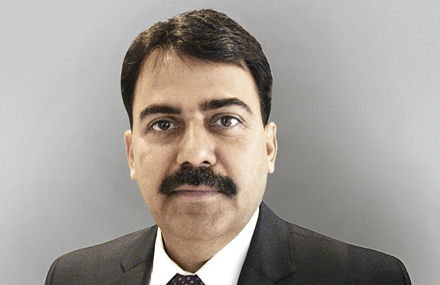Building competencies of Indian farming communities in agriculture and food security
Exploitation and degradation of productive resources negatively affect the livelihoods of India’s 450 million rural poor dependent on agriculture. A “win-win” is possible only when Natural Resources Management (NRM) is linked with livelihood improvement.
Indo-German bilateral cooperation under its Natural Resources Management portfolio is in a constant pursuit to make agriculture sustainable. It works towards building farmers’ competencies and capacities by providing them new technologies, improving access to information and providing relevant trainings, hand-holding support, and ensuring a decent income and food security. This is to enable adoption of good agricultural practices which are eco-friendly and sustainable.
Enabeling sustainable good agricultural practices
The Umbrella Programme for Natural Resources Management (UPNRM) is an innovative programme with the National Bank for Agriculture and Rural Development (NABARD), the German Development Bank KfW and GIZ. This programme focuses on shifting from grant to loan in NRM financing. The objective of UPNRM is increa-
sing investment in rural areas, creating business while using natural resources in a sustainable manner. UPNRM demonstrates the viability of participatory community-
owned approaches to natural resource management with strong capacity building support tailored to specific needs of the rural poor without access to classical bank financing. Some selected prominent examples of innovative technologies under UPNRM are:
- Improved cultivation practises such as System of Rice Intensification (SRI);
- Enhanced water use efficiency: Micro-irrigation practice like drip irrigation;
- Organic farming using non-chemicalng using non-chemical inputs like vermicomposting, tank silt, bio-fertilisers etc.
System of Rice Intensification (SRI) technique aimed at improving water use efficiency, increasing the rice productivity and yield has been introduced on a large scale under the UPNRM. This climate smart approach substantially reduces methane emission due to intermittent wetting and drying, instead of inundation. Developed as a best practice, SRI has changed the traditional paddy cultivation.
SRI includes transplanting of younger seedlings, in well drained and aerated soils using single seedling per hill as against the conventional rice cultivation in flooded nurseries with no regular spacing between clumps. UPNRM has trained farmers and provided handholding support to undertake SRI cultivation. Today, over 20,000 ha of SRI have saved around 89 million cubic meters of water conserving almost 50 % of ground water which is otherwise used for flood irrigation in traditional paddy cultivation practices. All these with a 60 % increase in paddy yield adding to the food and nutritional security.
Adding to food and nutritional security
The motto “more crop per drop” for Indian agriculture means improving water use efficiency by using drip irrigation. This method has the twin benefit of reducing irrigation water and improving crop productivity. Under UPNRM farmers are given financial and technical support to understand the technology and adopt it on their fields for crops like cotton, sugarcane, and banana. Drip irrigation projects have also shown a considerable reduction in consumption of chemical fertilisers and pesticides. This has reduced cultivation cost and increased profitability. Drip irrigation projects under UPNRM saved around 2.7 million cubic meters of water per annum.
Organic Agriculture: Intensive use of chemical fertilisers reduces the fertility of the soil, polluting ground and surface water, reducing land and agricultural productivity also contributing to greenhouse gas emission. UPNRM addresses this problem by reducing the use of chemical fertilisers. Around 1.6 lakh quintal of organic manure has been generated through 18 projects promoting green farming on 2,995 ha. Competencies of farmers are built to understand that recycling organic waste is not only an ecological necessity, but is also economically beneficial.
Organic manure together with vermicomposting has replaced 449.3 tonnes of chemical fertilisers annually. A wide array of agricultural knowledge and information exists in India. Accessing them is still a major challenge for farmers. To further link farmers to existing information and extension networks in agriculture, the Ministry of Agriculture in collaboration with GIZ is implementing the programme Climate Change Knowledge Network for Indian Agriculture. This aims to develop an effective, timely, dynamic, authentic and farmer-friendly agricultural information network for all the stakeholders.
The programme’s major objective is to operationalise the National Mission on Sustainable Agriculture of Government of India in selected districts of three states of India, Maharashtra, Jharkhand and Odisha. This programme runs a consortium approach in close coordination with multiple stakeholders like government departments, extension training institutes, Krishi Vigyan Kendras (Agriculture Research Centres), meteorological service agencies, self-help groups and model farmers.
UPNRM empowers the rural farming community
The Farmer’s handbook on basic agriculture is an agriculture extension tool providing technical support and information to make farmers aware about best agricultural practices. These include critical factors in selection of crops and cropping patterns, conservation of soil and water, importance of mechanisation, soil and plant nutrition, farm management practices, and information on extension, credit, insurance etc. This is a practical way to expose farmers for adopting new technologies and manage-
ment practises for a more sustainable agriculture.
Conclusion
The Natural Resource Management efforts of GIZ, through its technical support and capacity building measures, empowers the rural farming community to practise sustainable agriculture as a business by adopting innovative agricultural techniques.
The programmes build synergies between various stakeholders in the NRM sector by means of effective information and knowledge management and dissemination.



